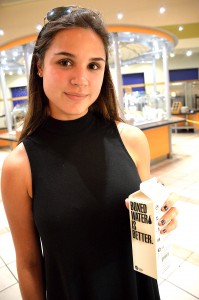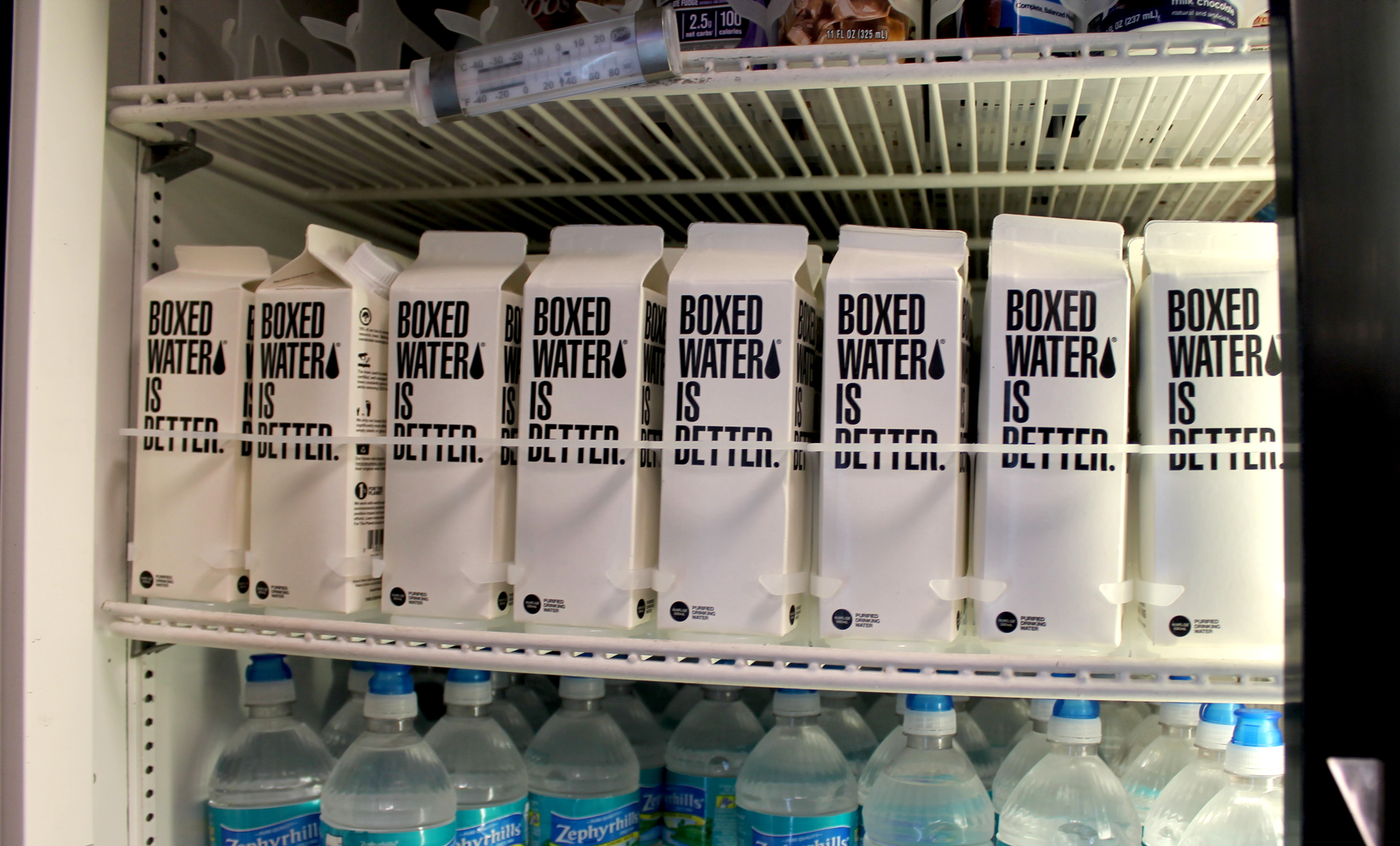 Sustainability is a word on everyone’s lips. Students are taking strides in recycling, eating organic foods, using boxed water instead of plastic, choosing to ride their bikes over driving automobiles, and forming organizations on campus devoted to promoting and encouraging these healthy lifestyle choices on and off campus.
Sustainability is a word on everyone’s lips. Students are taking strides in recycling, eating organic foods, using boxed water instead of plastic, choosing to ride their bikes over driving automobiles, and forming organizations on campus devoted to promoting and encouraging these healthy lifestyle choices on and off campus.
According to the Rollins website, “The Sustainability Program strives to work in the institution to promote sustainable practices within Dining Services, Purchasing, and Facilities Management among others. These practices can balance environmental concerns with the long-term well-being of the college. The student-run Sustainability Program strives to reinforce the awareness of a healthy environment as a top priority of Rollins College through activities on the Rollins campus and in the wider community.”
Charlotte Whiteman ’16, Sustainability Coordinator at Rollins College, believes putting sustainability into action will make Rollins College a better campus community.
“Rollins prides itself on being a progressive school. This is arguably the most progressive movement of our time and is extremely important for the well being of future generations and the state of the earth. It is important that we take these things into account and spread a more sustainable mindset, because it is the way of the future,” she said. “Rollins can set an example for other colleges and universities alike and in doing so, we will be a part of history. Future generations—future Rollins will thank us. This is a time in our lives when we are forming our values and beliefs and opinions of what we will support in the future as we jump start our careers. College is one of the most fundamental stages of development for people our age. We are free to make our own decisions, and we choose which habits to incorporate into our everyday lives. When students choose sustainability now, the future gets a little brighter.”
EcoRollins meetings are every Thursday at 1 p.m. in Sullivan House. EcoRollins organizes camping trips, farm workshops, and meetings at the greenhouse. All majors are welcome and invited to share their ideas on how to make Rollins more eco-friendly.
Interest is not the only thing growing on the Urban Farm, located on the lakeside of Elizabeth Hall. Open Farm Hours are twice a week, Tuesdays from 8 to 9 a.m. and Thursdays from 5 to 6 p.m.
Courtney Banker ‘16, another sustainability coordinator, clarifies the different aims of student organizations EcoRollins and the Sustainability Program and why they work so well together.
“Both are two separate entities that collaborate often and typically face overlapping members and coordinators but try to tackle sustainability from two different sides. EcoRollins seeks to promote awareness about environmental issues on campus and in the greater community through events like guided nature hikes in addition to plastic reduction and local food campaigns,” she said.
“The Sustainability Program attempts to address the policies and programs behind sustainability at Rollins, such as installing hydration stations, passing a no-idling ordinance, and maintaining the Rollins Urban Farm. This year, EcoRollins hopes to address the issue of cross-contamination between our waste and recycling bins on campus. Although education and streamlined recycling practices are crucial for a successful recycling program, we also strive to encourage less use of disposable items, both from the campus and consumer point of view.”
Like these two organizations, the Rollins Coalition for Sustainable Investment (RCSI) is a group of future-oriented students, faculty, staff, and alumni who want Rollins to work towards divesting its endowment from fossil fuel companies. According to RCSI, at least 1 percent of the endowment is invested in fossil fuels.
Organization creator Scott Novak ‘16, an International Relations and Philosophy major, shared his main goal with starting RCSI and why students should petition for the Board of Trustees to divest from Fossil Fuel Companies:
“Divesting from fossil fuels would signal that we believe that the fossil fuel industry, given the destruction it has caused and will cause, is a not-legitimate long-term investment. As an academic institution that has ‘global citizenship,’ ‘responsible leadership,’ ‘social responsibility,” and ‘environmental stewardship’ as part of our mission, divestment from fossil fuels is clearly in line with the values that we exist to promote,” said Novak.
And what does divesting in Fossil Fuel Companies mean for the future of Rollins?
“Schools with endowments both larger and smaller than Rollins’ that have already divested from fossil fuels prove that institutions can divest and still enjoy profitable returns on their investments,” commented Novak.
“Remember, it’s not as if the money that is divested from fossil fuels ceases to exist—it can be invested in thousands of other options likely to earn good returns. Divesting from fossil fuels would mean that Rollins College refuses to make short-term profits that will threaten our generation in the long-term. We students deserve a future that is not defined by climate chaos.”
Heather Schleiffer ‘16 further explains why these specific issues are ones that students should be aware of.
She said, “Fossil fuels are an urgent threat to the habitability of the planet, causing issues such as climate change and health issues. Students, whether they believe it or not, should at least be aware of the issues and make responsible choices towards global sustainability.”
The Rollins Coalition for Sustainable Investment will have weekly organization meetings every Tuesdays at 5 p.m. in the Rex Beach Classroom. Stop by and join the conversation.







Be First to Comment